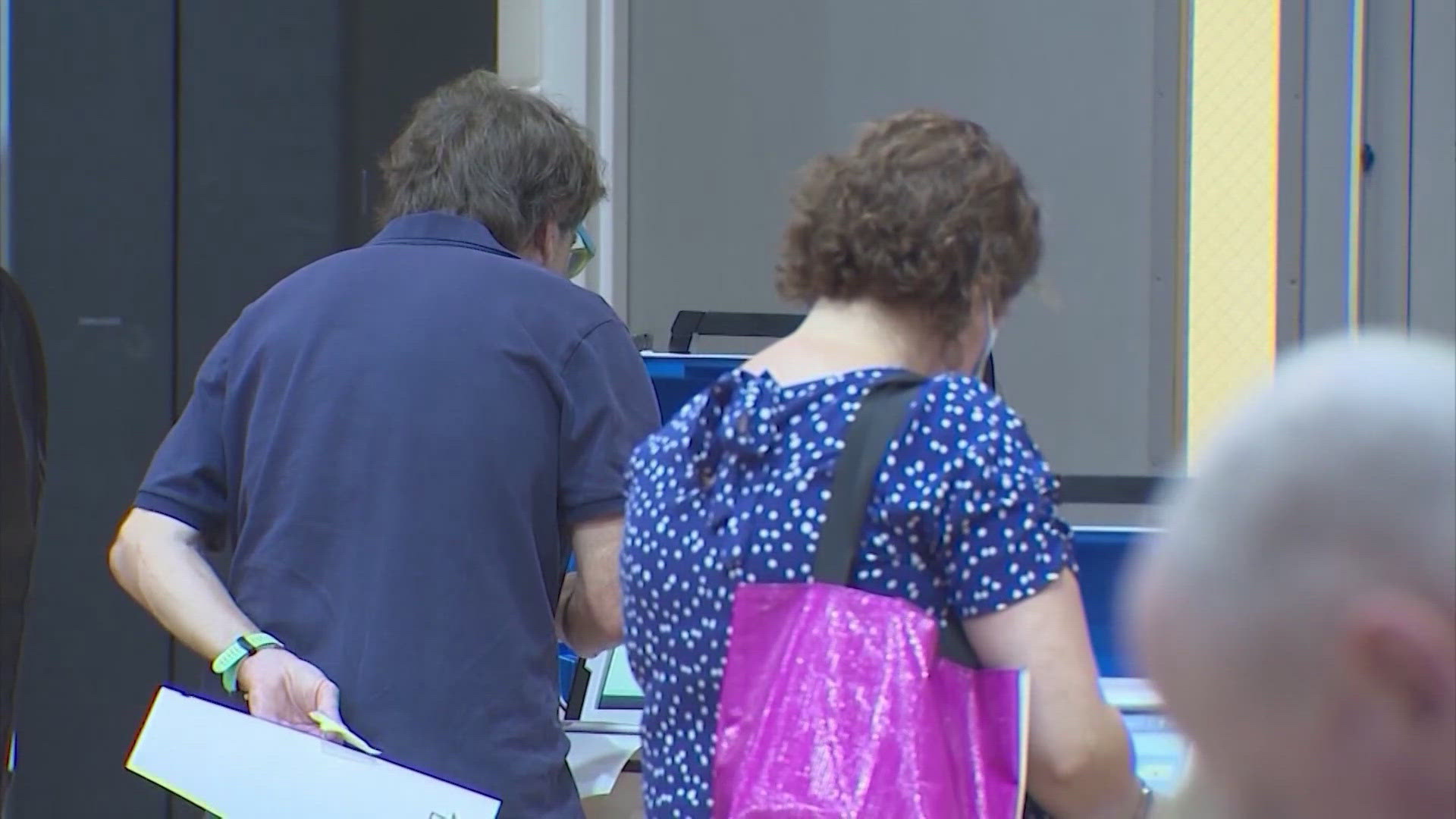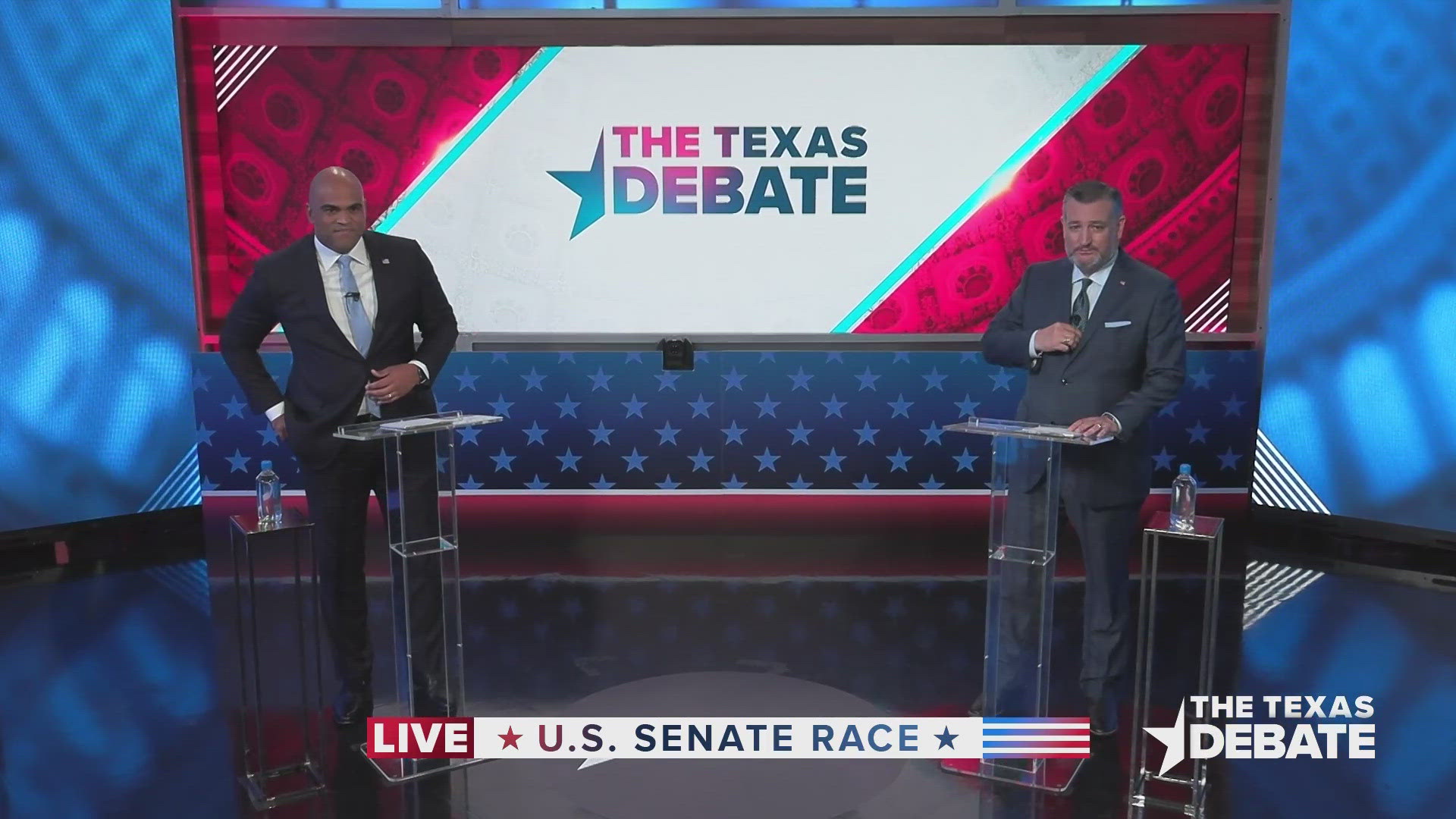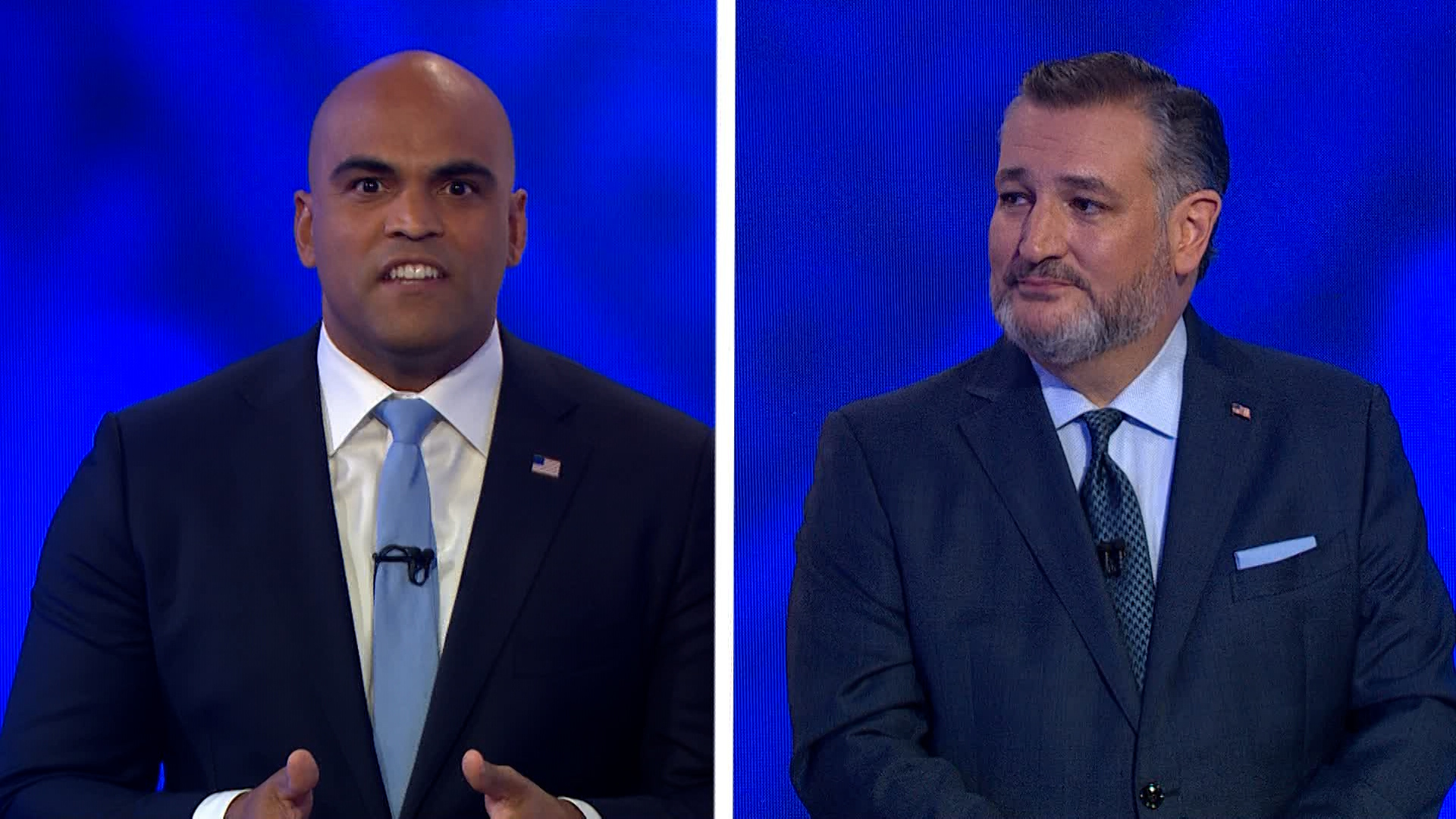HOUSTON — Voters will be heading to the polls in the Nov. 5, 2024 elections to pick the next president of the United States. Former President Donald Trump and current Vice President Kamala Harris go head-to-head in that race.
There are several other key races that people in the Houston area and Texas will decide. In Texas, voters will also decide a hotly contested U.S. Senate race between incumbent Ted Cruz and Democratic challenger Rep. Colin Allred, as well as the U.S. House District 18 race between former Houston Mayor Sylvester Turner and Lana Centonze to take over the seat left vacant by the passing of Congresswoman Sheila Jackson Lee.
Early voting in the general election gets underway on Monday, Oct. 21 and will run through Friday, Nov. 1.
Stay with KHOU 11 and KHOU.com for complete election coverage. Download the KHOU 11 app for updates sent to your phone. And you can find out more about the candidates and the issues on the League of Women Voters Voting guide!
Important dates for the Nov. 5 general election
Last day to register to vote:Monday, October 7- First day of early voting in person: Monday, October 21
- Last day to apply for ballot by mail: Friday, October 25
- Last day of early voting in person: Friday, November 1
- Last day to receive ballot by mail: Tuesday, November 5, which is Election Day.
Am I registered to vote?
Before heading to the polls, you need to make sure you're registered to vote! there's a link and just a couple steps to determine if you are.
What's on the ballot?
- Harris County sample ballot
- Fort Bend County sample ballot
- Montgomery County sample ballot
- Galveston County sample ballot
- Brazoria County sample ballot
- Liberty County sample ballot
- Chambers County sample ballot
- Wharton County sample ballot
- Walker County sample ballot
- Grimes County sample ballot
- San Jacinto sample ballot
- Jackson County sample ballot
Where do I vote?
Below are links to county election offices, where they are keeping lists and maps of voting locations.
What's on the ballot?
Sen. Ted Cruz and Rep. Colin Allred
Senator Ted Cruz and challenger Colin Allred went head-to-head in their first and likely only debate. You can watch the full debate live below in English and in Spanish.
RELATED: Our VERIFY team looked at claims from the debate between Sen. Ted Cruz and Rep. Colin Allred
Why there are two races on the ballot for U.S. House District 18
There are two races on the ballot for U.S. House District 18. That's the seat formerly held by the late Rep. Sheila Jackson Lee. One race on the ballot is to finish the rest of her term that runs through January. The other is to take it over for at least the next two-year term.
Jackson Lee's daughter, Erica Lee Carter, is running in the special election to finish her mother's term. She'll be up against Maria Dunn and Kevin O. Dural.
In the other race for District 18, which is the one that would begin in January, former Houston Mayor Sylvester Turner will be the Democrat on the ballot up against Republican Lana Centoze.
HISD Bond election
HISD has two bond items on the Nov. ballot -- HISD Bond Prop A, which is $3.96B and and HISD Bond Prop B, which is $440M. Below is previous reporting from KHOU 11 on the bonds, what they include and reaction.
RELATED: More than 160 people show up to speak at last HISD board meeting before vote on historic bond
What's on the HISD Bonds, from the district....
$1.04 billion toward creating safe and healthy campuses
- Security upgrades to 263 campuses and 25 non-campus facilities.
- HISD police upgrades
- HVAC upgrades at 188 campuses
- Lead abatement at 134 campuses
$1.07 billion toward making campuses "future-ready"
- Three new CTE centers in the North, South, and West divisions
- Renovation of Barbara Jordan Career Center
- PreK expansion with an estimated 4,000 new seats
- District-wide technology and IT upgrades
$2.27 billion toward restoring HISD schools
- 43 individual school investments like renovations, rebuilds and expansions to address urgent facility needs
VP Kamala Harris and former President Trump top the ballot
Former President Donald Trump is vying to return to the White House after one term out of it. VP Kamala Harris looks to keep the Democrats at 1600 Pennsylvania Avenue
Your voting questions answered
How to vote by mail
In Texas, you may vote early by mail if:
- You are 65 years of age or older on Election Day
- You are sick or disabled (as defined in Texas Election Code)
- You expect to give birth within three weeks before or after Election Day.
- You are out of your county on Election Day and during early voting hours.
- You are confined in jail or Involuntary Civil Commitment, but eligible to vote.
Download mail ballot in English | Espanol | Vietnamese | Chinese
Deadlines to submit mail ballots: The ballot must be received by the close of polls on Election Day.
Deadline to submit overseas ballots: Last mail delivery on the fifth day after Election Day.
Deadline to submit military ballots: Last mail delivery on the sixth day after Election Day.
Tips to avoid having mail ballot rejected
- Your application must be signed.
- You must provide either your Driver’s License/Personal ID Number (issued by DPS) or the last 4 digits of their Social Security Number. Your number must match what is on file with your voter registration, so we encourage you to provide both numbers if you are unsure of what you registered with.
- If you’re eligible and are requesting a ballot for each of the elections this year, mark the box next to “Annual Application” and the reason you’re eligible.
What do I bring with me to vote in person?
- Texas Driver License issued by Texas DPS
- Texas Election Identification Certificate issued by DPS
- Texas Personal Identification Card issued by DPS
- Texas Handgun License issued by DPS
- United States Military Identification Card containing the person’s photograph
- United States Citizenship Certificate containing the person’s photograph
- United States Passport (book or card)
For voters aged 18-69, photo IDs must not be expired for more than four years, with the exception of U.S. Citizenship Certificate, which doesn't expire. Anyone 70 years and above, acceptable forms of photo IDs can be expired for any length of time if the ID is otherwise valid.
For those who don't have any of the above forms of ID, here are some supporting forms of ID that can be shown.
- Copy or original of a government document that shows the voter’s name and an address, including the voter’s voter registration certificate;
- Copy of or original current utility bill;
- Copy of or original bank statement;
- Copy of or original government check;
- Copy of or original paycheck; or
- Copy of or original of (a) a certified domestic (from a U.S. state or territory) birth certificate or (b) a document confirming birth admissible in a court of law which establishes the voter’s identity (which may include a foreign birth document).
You can learn more about acceptable forms of ID here.
What's not allowed at voting locations?
According to Texas law, no one can use any wireless communication devices within 100 feet of voting stations. People also can't use mechanical or electronic devices to record sound or images within 100 feet of voting stations.
You cannot use the following at polling locations:
- Cell phones
- Cameras
- Tablet computers
- Laptop computers
- Sound recorders
- Any other device that may communicate wirelessly, or be used to record sound or images
What you can't wear to the polls
You can't wear clothing or have any similar communication that relates to a candidate, measure or political party. If you do, a presiding judge can enforce the law within 100 feet outside a polling place entrance. You may be asked to cover up before going inside to vote.



